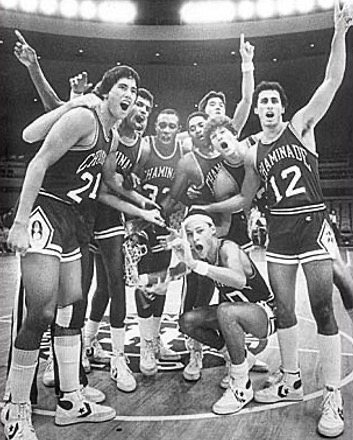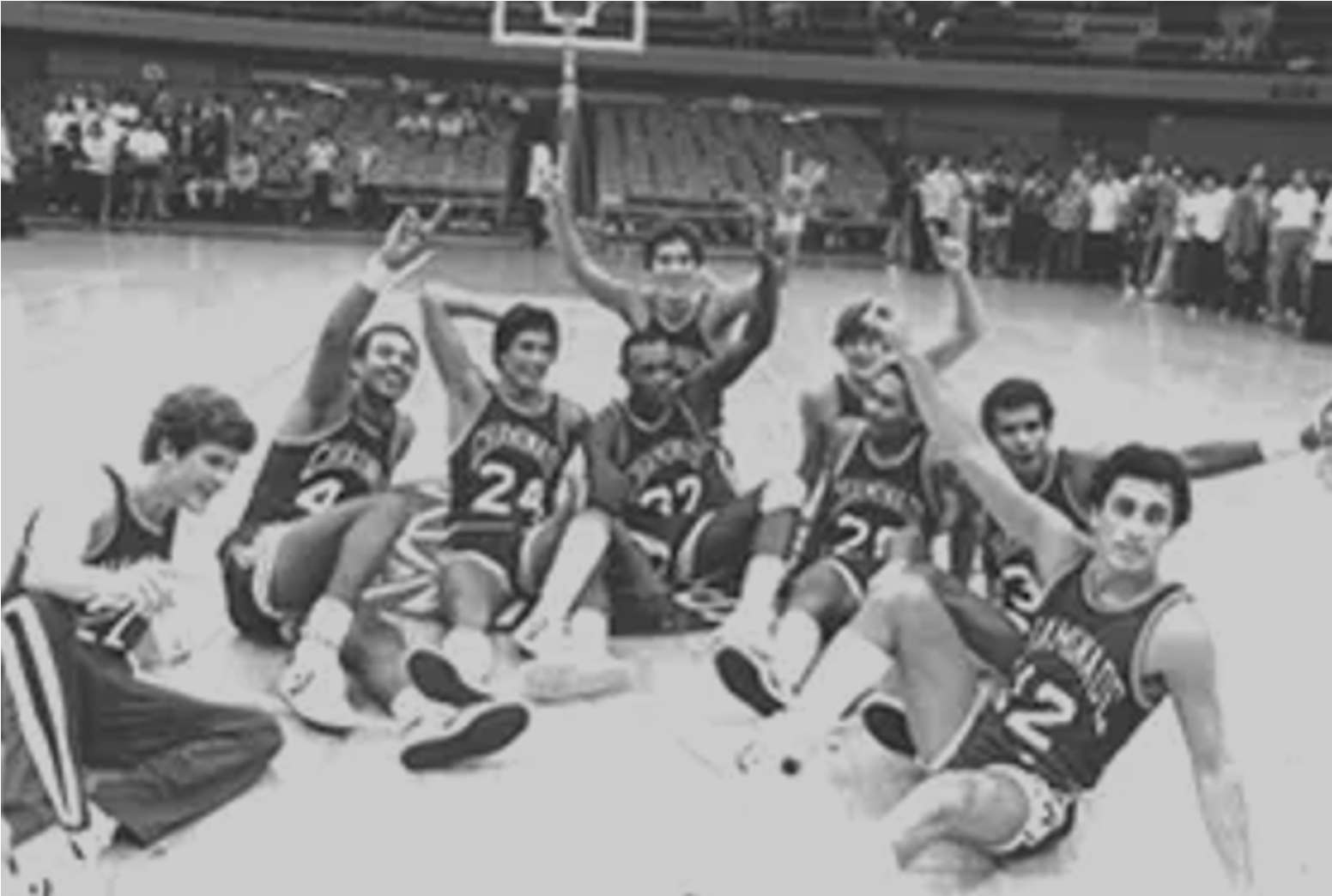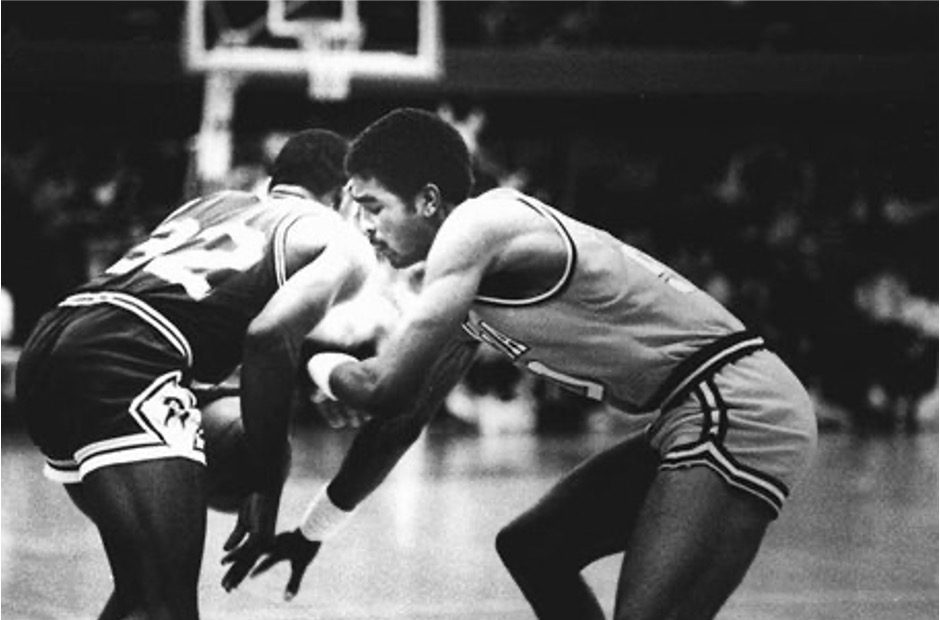With college basketball season returning, I thought of a major upset from 1982 that you will find interesting… because it reminds of a valuable phrase I often share when I speak at events:
“Talent is essential, but never sufficient.”
That opens the door to my messages on Building a GREAT Culture or being a Winning Teammate – because talent and strategy are often sabotaged by poor cultue or toxic team members!
Talent may give a team an advantage, but teamwork is what enables them to defy the odds and achieve the unthinkable.
In basketball, business, or any field, raw talent alone isn’t enough to guarantee sustained and meaningful success. True success comes from a culture where talent works in harmony with shared strategy, clear communication, and mutual trust.
Take the example of a tiny NAIA school, Chaminade, versus the top-ranked University of Virginia on December 23, 1982. The game wasn’t just an upset; it was a masterclass in how teamwork, strategy, and grit can conquer overwhelming odds.
Against a team of future NBA stars, the Chaminade Silver Swords played together with resilience and unity to defeat a powerhouse — a triumph of teamwork over talent.
Their story demonstrates the incredible potential of talent working in a cohesive culture…
And it offers valuable lessons for today’s leaders.

This legendary David vs. Goliath moment led to what is the Maui Invitational Tournament –
And, it provides SIX POWERFUL TAKEAWAY LEADERSHIP LESSONS ON HOW TEAMWORK CAN DEFEAT TALENT:
-
Talent Matters, but Culture Overwhelms
Virginia was an ACC powerhouse with a roster stacked with future NBA players. They had Ralph Sampson, a towering 7-foot-4 center who would go on to be the #1 pick in the NBA draft, and had just come off wins against elite teams like Houston, Georgetown, and Duke. Chaminade, on the other hand, was a small Catholic school with less than 800 students. They didn’t even have their own gym — they rented space at a local high school.
The talent disparity was staggering, yet Chaminade’s coach, Merv Lopes, knew that teamwork could be the great equalizer. He built a culture of unity, determination, and confidence, preparing his players to work together and support each other.
Chaminade didn’t have a single standout player who could take on Ralph Sampson alone; instead, they created a plan to maximize each player’s unique strengths, combining them into a strategy where the sum was greater than the individual parts.
In business, the same principle applies. Talent recruitment is important, but fostering a team culture that aligns every member toward common goals and values is essential. Without a cohesive culture, even the most talented teams struggle to execute well.
Leaders must focus on building this culture, ensuring that talent can thrive within a supportive framework. When people feel part of something larger than themselves, they give their best.
-
Preparation is the Foundation of Team Success
Chaminade’s preparation for the game exemplified how even small teams can create strategic advantages. During their pre-game practice, the Silver Swords used a broomstick to simulate the towering reach of Ralph Sampson. Curley Fujihara, their 5-foot manager, stood on a chair with the broom raised high, allowing the players to practice shooting over what would feel like an impossible obstacle.
This small but insightful exercise gave Chaminade a preview of the challenge ahead and a chance to adjust to the reality they’d face on the court.
In business, leaders can prepare their teams to face daunting challenges by developing scenarios, role-playing, and setting clear expectations.
Preparation builds resilience, minimizes surprises, and ensures that every team member is ready to act when circumstances get tough. By equipping team members to anticipate and navigate obstacles, leaders foster confidence and adaptability. Teams that practice how they’ll handle challenges are far better positioned to meet those challenges effectively.

-
Trust in Each Other and in Your Plan
During the game, Chaminade executed their plan with remarkable discipline, staying unified in their defense and distributing responsibilities. Tony Randolph, who was 6’8”, had to guard Sampson, even though he was giving up nearly 10 inches. The odds were stacked against him, but with the support of his teammates, Randolph was able to limit Sampson’s effectiveness. Every player had a role, and they trusted each other to fulfill it.
Trust is a critical component of teamwork. Without it, players (or team members) end up second-guessing or overextending, leading to mistakes and missed opportunities.
In the workplace, team members need to trust each other and the plan in place, knowing that everyone will follow through on their responsibilities. This level of trust enables quicker decision-making, smoother communication, and, ultimately, more effective execution.
Leaders can foster trust by setting clear roles, empowering team members, and recognizing contributions. When people feel valued and trusted, they’re more likely to commit to the team’s goals and to perform at their best, even in high-pressure situations.
-
Resilience and Grit Are Vital to Success
Despite being outmatched on paper, Chaminade displayed resilience throughout the game. The Silver Swords stayed competitive, and by halftime, they were tied with Virginia at 43. When Virginia took a seven-point lead with just over 11 minutes remaining, Chaminade didn’t waver.
Instead, they battled back, refusing to let the scoreboard dictate their effort or mindset. They maintained their focus, finally securing a historic 77-72 win.
Resilience is an often-overlooked but vital aspect of team success. Adversity is inevitable, but teams that have developed grit are better equipped to overcome setbacks.
For leaders, it’s essential to build a culture where resilience is celebrated, and challenges are seen as opportunities to learn and grow. Team members who approach obstacles with a positive, determined mindset are more likely to innovate and persevere under pressure.
Encouraging resilience can be as simple as framing setbacks as learning moments, rewarding perseverance, and emphasizing the team’s ability to overcome difficult circumstances. In the long run, resilience becomes a part of the team’s DNA, empowering them to rise above adversity time and time again.
-
Celebrate Wins and Learn from Losses
Virginia’s coach, Terry Holland, demonstrated exemplary sportsmanship after the game, recognizing the significance of Chaminade’s achievement. Rather than resenting the loss, he contacted Chaminade’s athletic director and proposed an annual tournament to celebrate Hawaii basketball. Two years later, the Maui Invitational was born, offering a platform for teams from across the country to compete in paradise.
Great leaders know that both wins and losses offer valuable lessons. Chaminade’s victory was a reminder of the importance of humility and reflection.
In business, celebrating successes, however small, reinforces positive behavior and team morale. At the same time, reflecting on setbacks with a growth mindset enables teams to identify areas for improvement without pointing fingers.
Leaders who cultivate this balance of celebration and learning create teams that are resilient, self-aware, and ready to continuously improve. This mindset is what enables organizations to navigate dynamic markets, seize new opportunities, and thrive over the long term.

-
Diversity and UNITY Drive Success
Chaminade’s team was composed of players from various backgrounds, yet they played with a shared purpose and identity. Coach Lopes emphasized that, despite their differences, they were united in their commitment to each other and the game plan. This unity fueled their ability to outplay a team with far greater resources and individual talent.
In the workplace, diversity can be one of the greatest assets, offering a wide range of perspectives and skills. But diversity alone isn’t enough — leaders must also foster unity by aligning everyone around shared values and goals.
Teams that embrace their unique backgrounds while working toward a common purpose become more innovative, resilient, and capable of achieving extraordinary results.
Business leaders can cultivate unity by celebrating diversity and creating opportunities for team members to connect and communicate. When people feel understood and respected, they’re more willing to collaborate, contribute ideas, and work together to solve complex problems.

Talent Overachives in GREAT Cultures
Chaminade’s unforgettable victory over Virginia is a powerful reminder that teamwork can overcome the steepest odds. In business, just as in sports, talent will always be valuable — but it’s not enough on its own.
Only by creating a culture that emphasizes preparation, trust, resilience, celebration, and unity can leaders unlock their team’s full potential.
If you’re ready to build a team that works together, overcomes challenges, and achieves outstanding results, consider partnering with an experienced speaker and facilitator…
Contact Sean Glaze to make your next professional development day a memorable and impactful success – let’s cultivate a culture where your team’s talent can thrive — and accomplish the extraordinary.
– – – – –
Sean Glaze is a leadership speaker, teambuilding facilitator, and author who delivers engaging experiences that ignite your team’s performance. Sean has worked with clients like Cisco, John Deere, the CDC, and Emory University to increase collaboration, boost productivity, and build more positive and profitable workplace cultures.
that ignite your team’s performance. Sean has worked with clients like Cisco, John Deere, the CDC, and Emory University to increase collaboration, boost productivity, and build more positive and profitable workplace cultures.
As a successful basketball coach, Sean gained valuable insights on turning talent into teamwork – and now he travels around the country to share those lessons. Sean’s conference keynotes and custom team building events deliver laugh-out-loud moments and memorable take-aways that transform your people into winning teammates and more effective leaders.
Sean’s books, Rapid Teamwork, The 10 Commandments of Winning Teammates, and Staying Coachable are entertaining parables that help accelerate the growth of leaders and their teams!


